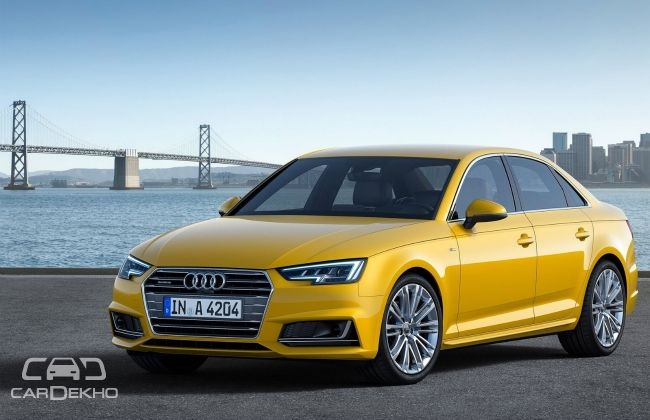Audi India Plans Local Assembly of 2.0-litre TDI Engine
Modified On Mar 29, 2016 11:53 AM By Saad
- Write a comment

Continuing with its Make in India plan, Audi is mulling to locally assemble the 2.0-litre TDI diesel engine that would begin by the end of this year. The rumours started emerging last year that Audi is planning local assembly of certain engines to reduce cost and accelerate production, but it seems now that the company is seriously thinking of implementing this. The said engine would be the second one after the 1.5-litre diesel mill, which underwent a localisation process last year. The 2.0-litre engine also meets BS-VI standards which will be mandatory starting April 2020.
According to a report by Moneycontrol, the popular 2.0-litre TDI engine, which is being used in several vehicles under the Volkswagen Group umbrella, would be locally assembled at the manufacturer’s Pune plant. The decision would help Audi to remain on par with its German counterparts Mercedes-Benz and BMW, which have been locally assembling their engines in collaboration with Force Motors.

Why the local assembly of 2.0-litre engine?
The 2.0-litre TDI diesel engine is a versatile powertrain that has been working in a range of vehicles under the Volkswagen Group, such as the Audi A4, the A6, the Q3, Skoda Superb, Skoda Octavia, VW Jetta, and the Passat, across the globe. The engine is an evolved version of the current TDI and is frugal in terms of both fuel economy and carbon emissions. The new engine also adds extra power and torque to the previous version, providing brisk acceleration. India being a market where people are inclined towards diesel engines due to their excellent fuel economy, the move will certainly be beneficial for prospective customers.
Secondly, the price benefit of localisation would be passed on to the customers, resulting in increased sales for the company as well. For instance, if the locally assembled engine is installed in the newly launched Skoda Superb, it would surely give its rivals such as Hyundai Sonata, Toyota Camry and upcoming Honda Accord a run for their money. Apply the same to the other cars of the VW group, and we would realize the intentions of the company with respect to its rivals.

It is speculated that the single assembly line in the plant will be used to fabricate the new engine. The move is expected to cut the import cost by 10 to 30 per cent and would help the carmaker set the price more competitively. This would eventually reduce the waiting period of Audi cars as well. The transmission gearbox of the company, though, would continue to be imported.
Audi has committed to launch 20 new models worldwide in the year 2016; a large part of this product line-up will also be available in the Indian market. So the intention of the company is to glide back to the numero uno position which it lost to Mercedes-Benz in 2015. We believe that the localisation of engines is just the beginning.
Source: Moneycontrol
Also Read: Spied: All-new Audi TT RS Cabriolet














